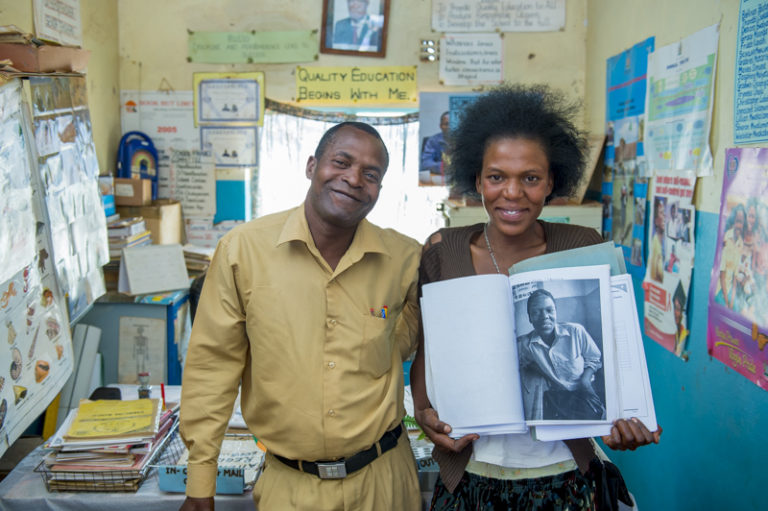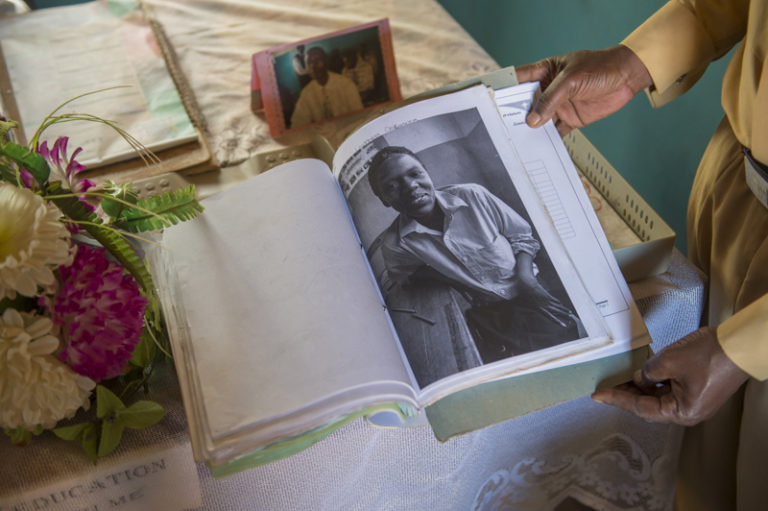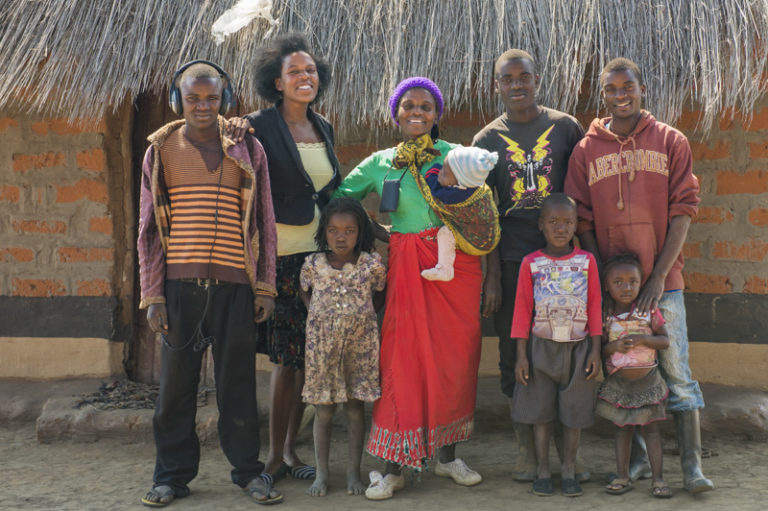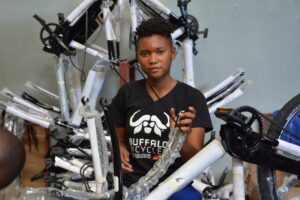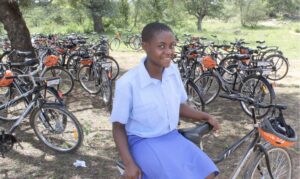Loveness was one of the first students to receive a Buffalo Bicycle from World Bicycle Relief in 2009. Five years later, WBR’s Creative Director Matt Pierce met with Loveness at her family’s farm in Chongwe Village, Zambia, to see where her bicycle has taken her.
The first thing I notice about Loveness is her smile. When we meet, she extends her hand and welcomes us. She motions for us to sit with her on wooden stools borrowed from the nearby hut.
“Thank you for coming to visit,” she says.
We’ve traveled to meet with Loveness at her family’s farm in Chongwe Village, located outside of Zambia’s capital, Lusaka. Her mother, brothers and sisters join us.
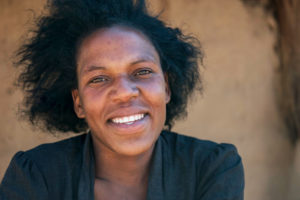
Loveness, now 22, was among the first students to receive a bicycle in 2009 as part of World Bicycle Relief’s education program. We’re eager to hear where Loveness’s bicycle has taken her these past five years.
Loveness is a confident young woman, full of questions. “What do you think of our country? What is America like? I hear it gets very cold there,” she asks without taking a breath.
She remembers clearly World Bicycle Relief founders F.K. Day and Leah Missbach Day, who were at Loveness’ school in 2009 when she received her bicycle. “How are Leah and her husband?” she asks. I tell her they’re doing well. “That’s good,” she says. “Leah was so kind and her husband, F.K. that man knows a lot about bicycles!” I agree and tell her I will be sure to say hello to them for her.
We sit in silence for a moment.
A man and several small children pull a large cart, heavy with a heap of newly found bush meat. Flies dart around the cart. Even from a distance, the pungent smell invades the serenity of our surroundings.
After an hour at her home, we head out to visit Loveness’s old school.
When we first met Loveness, she was walking nearly 9 km to and from her primary school. It would take her two hours each way. She often missed class due to the distance. Her new bicycle cut the commute time in half, but it also provided more than just transportation. Loveness’s attendance improved dramatically. She received good marks and was able to successfully complete school.
Now, at Loveness’s old school, we enter an empty classroom where she had studied history. She points to the far corner in the back of the room. I asked if this was where she sat during class. “I was a back-bencher,” she says, laughing. “But I made good marks.”
